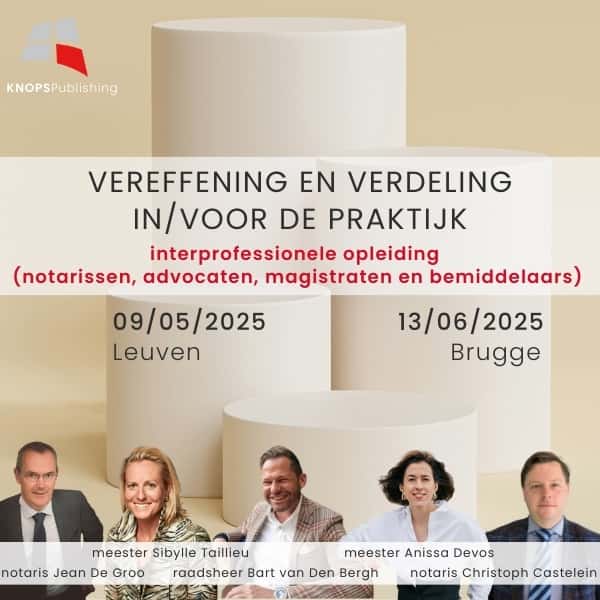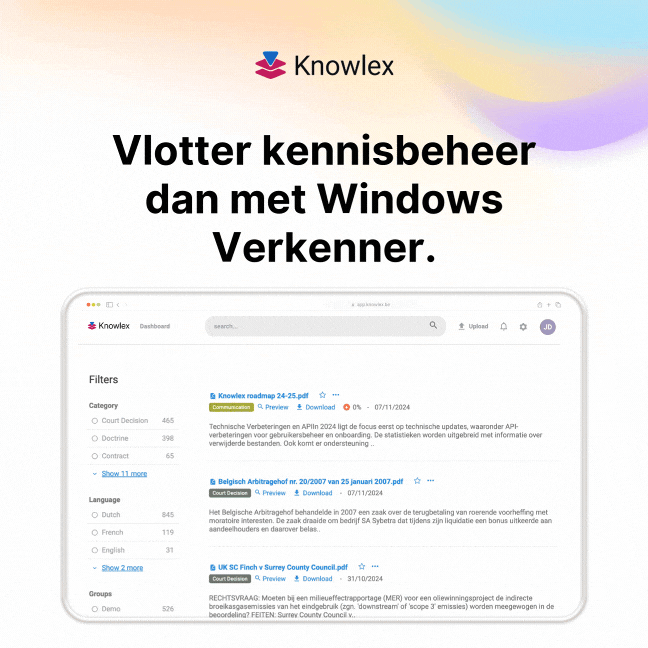Blockchain is one of the most innovative technologies of our time and has the potential to organise a more efficient, transparent and affordable society. Some even argue that blockchain can have as big an impact on society as the internet. The hopes for blockchain are very high, but can blockchain also be of use in the legal sector, and if so, do we already see some of this use in Belgium today? Let’s find out! We start with some examples of how blockchain can be used in the legal sector
Smart Contracts
In a smart contract, the terms and conditions for executing the contract are encoded on the blockchain. As soon as the parameters are met, the contract is executed automatically and invariably. This automatic execution means that there can no longer be any discussion about the execution of the contractual obligations, so that it will be less often necessary to use the help of an intermediary (e.g. the court) to enforce the execution of the contractual obligations.
The contractual obligations that can be encoded through a smart contract are numerous, e.g. holding in escrow of a rental guarantee, smart locks, etc. Although smart contracts will not be the end of complex written contracts, this technology may certainly offer added value for the execution of relatively simple contracts with little room for discussion.
Smart contracts are rapidly gaining popularity. This is also evidenced by the fact that more and more legal tech companies (both established companies such as Rocket Lawyer and LegalZoom as start-ups such as Agrello and DocTailor), are now focusing on this.
Real estate transactions
Real estate registers are slow, expensive and often not reliable. In Belgium, as in most countries, ownership and transfer of property (and other rights in rem) in Belgium are still kept in out-of-date databases (in Belgium: the Mortgage Register and the Land Register). Retrieving information from these databases often takes several weeks, leading to costs, loss of time and frustration.
Blockchain finally makes it possible to put an end to outdated databases and to register the ownership and transfer of real estate in a transparent, easily accessible and unchangeable database. Retrieving information from the database only takes a few moments and can be done almost free of charge. A transfer of the real estate can be confirmed on the blockchain by the buyer and the seller, so that the entire transaction only takes a few hours to complete.
This is no science fiction. In Georgia, the land register has already been encoded on blockchain leading to a 90% reduction of the costs and time needed to transfer real property. Also in Sweden, a similar project has been set up.
Crypto-wills
Wills exist in various forms. People often choose a private will because this is the cheapest option, but private wills sometimes get lost or falsified.
Crypto-wills resolve these concerns all at once. Crypto-wills are stored on the blockchain and the beneficiaries of the will (only they) get a private key to see the will. A further step could be to encode a smart contact on the crypto-will so that, in case of death, the will is executed automatically.
IP
IP is currently registered and issued through national and international databases that are managed by intermediaries or agencies. Practice shows that registering, protecting and enforcing IP all too often is cumbersome, costly and time-consuming. The use of blockchain can be a big step forward in this respect, for example by encoding the registration of IP (e.g. patents and patents) on a blockchain database. In an ideal scenario, it could even be possible for the inventors themselves to save their idea on the blockchain, without an intermediary.
Since the blockchain is transparent and unchanging, it can be used as a clear, accurate and simple database containing certain IP rights. In addition, through smart contracts, licenses can be granted to third parties to use IP encoded on the blockchain. This will also make it easier for the owner to claim his rightful compensation afterwards.
Examples of these features already available on the market today include Licens3D (design protection), Operem and Bernstein (IP storage and sharing).
Blockchain in Belgium?
Are there already block chain use cases in Belgium at this moment? A 2018 study conducted by the PXL Blockchainlabidentified 68 blockchain projects in Flanders and Brussels. Most of these projects are still in a ‘proof of concept’ phase during which it is checked whether the application is technologically and commercially viable. 11 projects are in the pilot phase and 10 blockchain projects are operational.
The projects have been launched in different sectors, but mainly in the financial and public sectors
For the legal sector, one application was identified, being a solution whereby information from a share register is stored on the blockchain (a project of The Ledger, at the moment of the publication of the study this project was in the ‘proof of concept’ phase).
Even though some companies are already dealing with blockchain, the potential of blockchain – also in the legal sector – is still too often underexposed today (unlike for example AI). According to a recent study (2018) of PwC, the main reasons for this are an uncertain legislative framework and a lack of trust in the technology and between users.
The current lack of trust can largely be explained by a lack of knowledge among the public about the technology and its possible use cases. While some great initiatives in this field already exist (e.g. PXL Blockchainlab and the Hive at Belgian level, and the Blockchain Observatory & Forum established by the EU), there is still work to be done. The more blockchain is brought to the attention, the more trust and knowledge about this technology will grow.
In terms of regulation, a small number of countries (e.g. Malta, Japan, USA) have already established a legislative framework for blockchain. The Belgian legislator is not yet concerned about this and may be waiting for initiatives on this from the EU-level.
But why wait any longer? It is only a matter of time before blockchain completely breaks through in society, including the Belgian legal sector. The blockchain technology is ready and is available online (often for free) waiting for companies, industries and individuals who want to take this digital step. The time has come to take this step effectively.
Meer lezen van Digital Lawyer Digest? Dat kan hier?
| Over de auteur
My name is Jörg Heirman and I am corporate lawyer at the Brussels office of Ashurst LLP. I love to read and philosophize about how the digital revolution will shake the legal sector. Determined to wake up the Belgian legal industry, I started my own blog on www.eleventbillablehour.com.
|






0 reacties